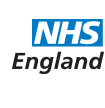NHS England announce benefit from radical new hospital collaboration drive
30 September 2015
 NHS England Chief Executive Simon Stevens will today (Friday 25 September) announce radical new options for the future of local hospitals across the NHS. The new models being developed by 13 new hospital Vanguards represent the next stage of implementing the NHS Five Year Forward View.
NHS England Chief Executive Simon Stevens will today (Friday 25 September) announce radical new options for the future of local hospitals across the NHS. The new models being developed by 13 new hospital Vanguards represent the next stage of implementing the NHS Five Year Forward View.
Today’s new group of NHS Vanguards involve some of the best-known and best-run hospitals in Britain, including the Royal Marsden, Northumbria Healthcare Trust, the Christie, the Royal Free Hospital, Moorfields, Salford Royal, and University College Hospitals. They will now be extending their geographical reach, stepping up to the challenge of driving efficiency and improvement across the country.
Acute Care Collaboration Vanguards are designed to spread excellence in hospital services and management across multiple geographies. By contrast, the 37 vanguards already launched mostly focus on integrating care between GPs, social and community care, mental health and hospital services within their local area.
There are three new approaches that will now be tested, in response to ideas for reform that have been proposed by frontline clinicians and managers themselves:
- Excellently-performing individual NHS hospitals able to form NHS Foundation Groups to raise standards across a chain of hospitals (a model of hospital ‘chains’ frequently used in other countries).
- Individual clinical services at local District General Hospitals being run on site by specialists from regional centres of excellence (for example, orthopaedics, ophthalmology, and neurosciences). Also in this model, a smaller trust draws in expertise from larger and surrounding trusts through a mixture of both networking and franchises.
- Forming ‘accountable clinical networks’ integrating care across District General Hospitals and teaching hospitals for key services, including cancer and mental health. As recommended by the recent independent Cancer Taskforce, the new cancer vanguards will work towards taking accountability for a population budget for cancer care, able to operate across sites, move investment into speedier early diagnosis, and optimising combinations of cancer surgery, radiotherapy and chemotherapy.
During a speech to the Confederation of British Industry in London this afternoon, Simon Stevens will say: “The era of go-it-alone individual hospitals is now being superceded by more integrated care partnerships – both within local areas, and across different parts of the country. The scale of the interest in these new vanguards from across the health service shows the NHS is up for radical reform.
“Our new approach to hospital partnerships will help sustain the viability of local hospitals, share clinical and management expertise across geographies, and drive efficiency beyond the walls of individual institutions.
“We’ve got some of the world’s best hospitals and specialists in this country, and it’s right they should be able to extend their reach more widely, as the vanguard programme will now allow them to do.”
Ed Smith, Chair of Monitor and the new Chair-designate of NHS Improvement (Monitor and TDA) said: “Today’s new vanguards represent the evolution from the era of standalone hospitals, begun in the 1962 Hospital Plan for England, and reinforced by the creation of foundation trusts in the early 2000s. These were right at the time, but the economic and clinical circumstances facing the NHS are now different, and our response needs to evolve.”
The Acute Care Collaboration vanguards will develop new arrangements between hospitals for sharing staff, services and resources to improve the quality of care provided to patients, the clinical viability of smaller hospitals, and the productivity of each participating hospital.
A joint programme led by NHS England and NHS Improvement with other Five Year Forward View Partners, the new vanguards will receive financial and practical support, and learning from their experience will be used by other areas in coming years.
The 13 vanguards – chosen from 65 bids – will be:
Multihospital chains
- Salford and Wigan Foundation Chain
- Northumbria Foundation Group
- Royal Free London
Multisite specialty franchises
- Dartford and Gravesham (small District General Hospital making use of specialty franchises)
- Moorfields (Ophthalmology)
- National Orthopaedic Alliance (Orthopaedics)
- The Neuro Network (The Walton, Liverpool) (Neurology and spinal specialty)
Accountable clinical networks
- MERIT (Birmingham and Solihull) (Mental Health Accountable Clinical Network);
- Cheshire and Merseyside Women’s and Children Services (Maternity and Paediatrics Accountable Clinical Network);
- Royal Marsden, Manchester Cancer and UCLH (Cancer)
- East Midlands Radiology Consortium (Radiology)
- Developing ‘One NHS’ in Dorset (Multispecialty)
- Working Together Partnership (South Yorkshire, North Derbyshire and Mid Yorkshire) (multispecialty)
The announcement completes the plan for a new generation of care models put forward in the NHS Five Year Forward View to transform the way care is delivered across the NHS. Previous types of vanguards have focussed on:
- Integrated primary and acute care systems – joining up GP, hospital, community and mental health services in their local area
- Multispecialty community providers – moving specialist care out of hospitals into the community;
- Care homes – offering older people better, joined up health, care and rehabilitation services, and;
- Urgent and emergency care – new approaches to improve the coordination of services and reduce pressure on A&E departments.
External Communications NHS England
